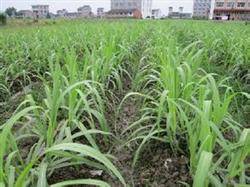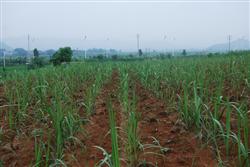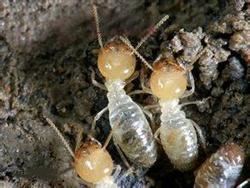Management of sugarcane in spring

The phosphate fertilizer fully crushed with phosphate fertilizer, garbage fertilizer and farm manure are fully mixed and composted before application. In recent years, many sugarcane farmers directly spread phosphate fertilizer in the ditches, so that the utilization rate of phosphate fertilizer is less than 10% and more than 90% is fixed by the soil as ineffective phosphate fertilizer wasted. It is suggested that more than 750 kg of farm manure and garbage fertilizer should be fully crushed with phosphate fertilizer 30-50 kg per mu; when planting sugarcane, fertilizer should be applied in the open ditch, which can double the utilization rate of phosphate fertilizer. The control of insect borers, aphids, thrips and sugarcane turtles have become the main pests affecting sugarcane. Suggestion: after ditching when planting sugarcane, apply 3-3.5 kg of Velan per mu or 10 kg of 5% phoxim granules or 0.8-1.5 kg of 14% poisonous crickets granules. The seed was soaked when the new planting ditch was wet or after it was wet, and the seedlings were soaked and disinfected. Soak in more than 1000 times of Yinling for 10 minutes for 15 minutes and apply when garbage fertilizer or soil fertilizer is wet. Management of ratoon sugarcane in spring scientific management is very important for high yield of ratoon sugarcane. 1. After clearing the garden early and opening ridges, loosening soil and cutting sugarcane, we should clean up the sugarcane garden as soon as possible, and then break the ridge to bury the sugarcane leaves; early clear garden ridging can not only reduce the source of overwintering insects, but also conducive to the germination of sugarcane buds. 2. Before applying early fertilization and sufficient fertilizer, 40-50 kg of phosphate fertilizer, 1500 kg of farm manure or garbage fertilizer per mu can be applied, and 15 kg of urea, 10 kg of potassium chloride and 15 kg of compound fertilizer can be added. 3. Early prevention and control of insect and grass pests: when closing ridges, use carbofuran 4 kg or 5% phoxim granules 10 kg or 14% chlorpyrifos granules 0.8-1.5 kg per mu. Chemical weeding: weed sprouting stage with 96% Jindu 50g 70ml, or mu with 50% atrazine 250g plus 50% hexachlor 150g or 72% atrazine 120g 150ml or atrazine 250g plus dimethyltetrachloro50g water 60g 75kg spray. The weeds were sprayed with 500g dimethylidene chloride 100g dimethyl tetrachloride and 40g 75kg water at seedling stage. 4. Early examination of seedlings should be carried out at the time of full seedling, and seedlings should be replanted where there is a lack of buds at an interval of more than 30 cm, and seedlings should be carried out immediately after rain.
- Prev

Nutritional requirements and fertilization of Sugarcane
First, the use of phosphate fertilizer must be fully crushed and fully mixed with garbage fertilizer or farm soil fertilizer before composting. In recent years, many sugarcane farmers directly spread phosphate fertilizer in the ditches, so that the utilization rate of phosphate fertilizer is less than 10% and more than 90% is wasted by soil fixation into ineffective phosphorus. The author suggests: using phosphate fertilizer 30 per mu.
- Next

Harm and control methods of sugarcane termites
Sugarcane termites are mainly black-winged termites and yellow-winged termites. Sugarcane will be harmed by termites in the whole growing period, especially in the germination stage after sowing, and the harmful sugarcane species often invade through the incisions at both ends and eat the tissue in the stem, so that the seedlings can not germinate. In the middle and later stage, it was eaten by the underground sugarcane, making the stem hollow, the leaves withered yellow or dry shoots, and the whole plant withered.
Related
- Moge, come on! The staff of the peasant association in the producing area of cantaloupe were frightened when the crowd gathered.
- Causes and Solutions of low Fruit setting rate of Apple
- Symptoms and control measures of passion fruit virus disease
- Fruit growing lesson: how do apple orchards keep high yields?
- Can you build orchards in the mountains? What are the pros and cons?
- How to manage the coloring period of Crisson grape?
- This paper introduces the processing technology of two kinds of fig products.
- How much is a month for retired teachers in rural areas by 2020?
- How can strawberry planting increase sugar content? We should pay attention to management in many aspects.
- What are the cultivation techniques on how to improve the yield of golden fruit?

